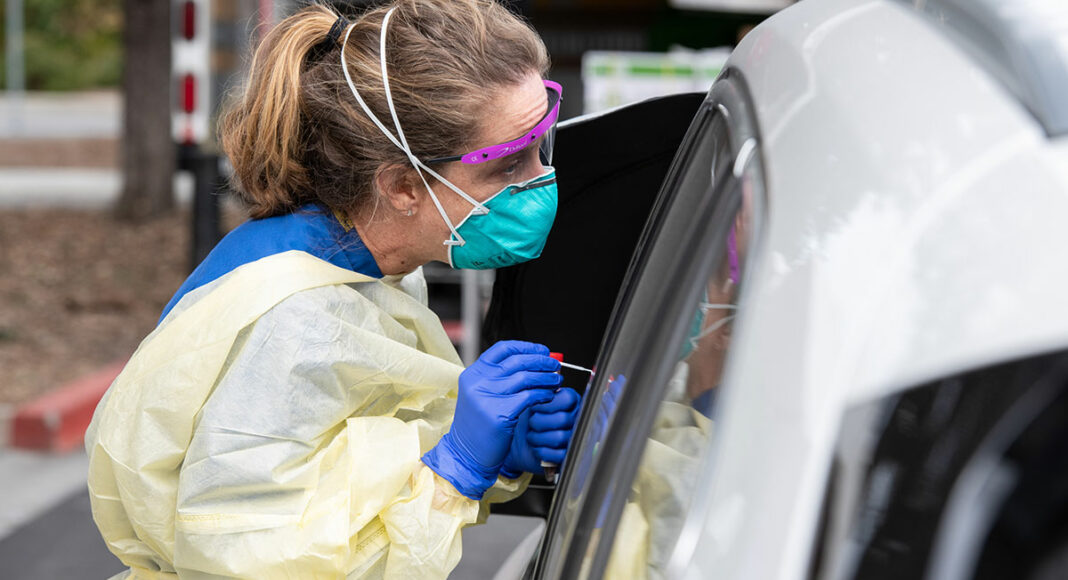Roughly 3,000 Covid-19 tests are being administered per day in Santa Cruz County, as residents try to dodge the latest, hyper-transmissible Omicron variant of Covid.
But that mark, says county spokesperson Jason Hoppin, is only a fraction of the true number of tests being used throughout the county. Hoppin says that there are likely hundreds, if not thousands, of additional tests that are being conducted every day at home.
“Everyone is trying to get a test,” Hoppin says. “There is an extraordinary demand in the county now, as there is throughout the nation.”
The county on Dec. 30 announced that it would expand its testing capacity at three sites: Depot Park in Santa Cruz, Ramsay Park in Watsonville and the Mountain Community Resources Center in Felton. Expanded hours at those sites began last week, and Hoppin says that the three locations accounted for almost half—about 1,400—of the tests reported to the county health department.
But because of the rise of the at-home rapid tests, which have been harder and harder to find as Omicron has wreaked havoc, it’s tough to get an accurate estimate of how many people throughout the county have taken a test and, more importantly, have come back positive.
The more than 3,300 active Covid-19 cases recorded Monday are the most the county has seen since the start of the pandemic. The county’s positivity rate, 11.8%, is the highest it’s been since the 2020-2021 winter surge.
But there is good news: despite the mass rise in cases, the number of county residents filling ICU beds has not seen a similar jump. There were only three people in intensive care in local hospitals as of Monday, Hoppin said.
In addition, Hoppin says that a significant portion of the county’s 18 patients hospitalized with Covid-19 were headed to the hospital for other reasons such as surgery. All patients must be tested for Covid-19, and if they test positive they must be treated as a Covid-19 patient, meaning they are isolated from other patients.
Hoppin also says that a positive case is not removed from the county’s dashboard count for three weeks, regardless of whether the person who tested positive is no longer infected with the disease.
For much of December, test results from the three aforementioned sites were taking roughly 48 hours. Hoppin says that is likely not the case any longer. Not only have lines at those sites gotten longer, but the lab processing those tests is also in charge of processing tests from other sites across the region.
“We’re doing what we can to make tests accessible to county residents, but there are some things—the supply chain, for instance—that are out of our control,” he says.
Several local pharmacies and stores were sold out of at-home rapid tests, and online orders were backed up for at least two weeks with most retailers.
The White House announced last week that it had finalized contracts to fulfill its plan to mail some 500 million free at-home test kits. And on Monday, the Biden administration doubled down on bringing test kits to homes across the U.S. by requiring private health care providers to pay for eight tests per person per month.The latter move, the Health and Human Services Administration says, will begin Jan. 15.













